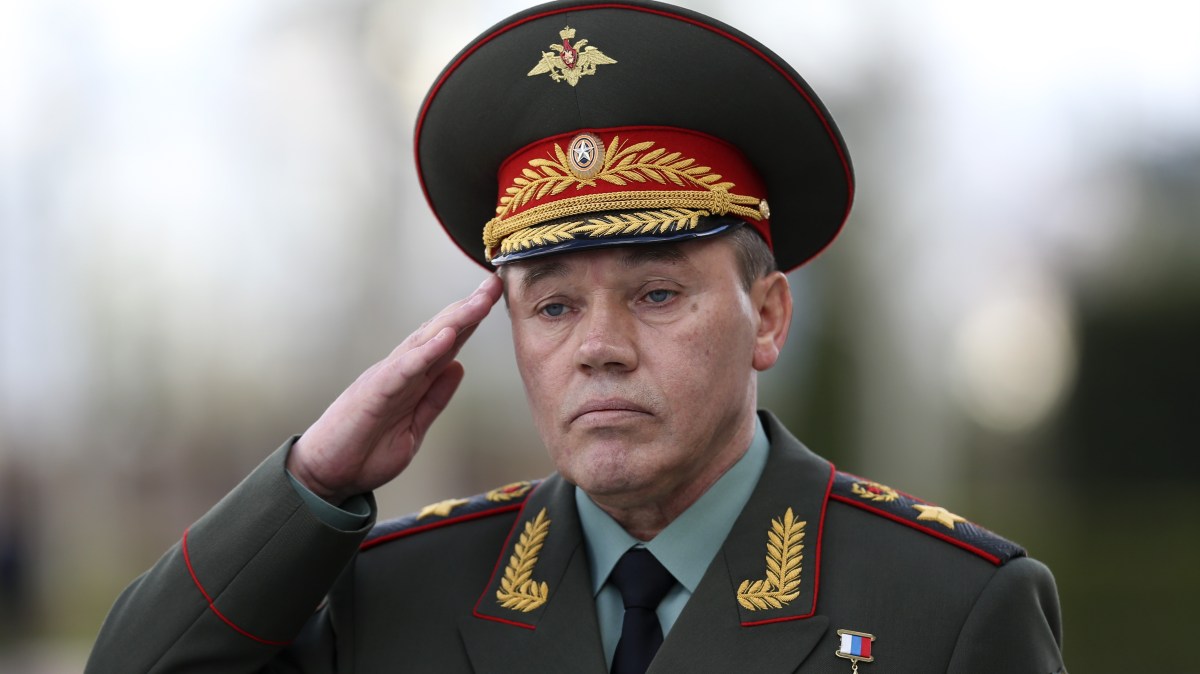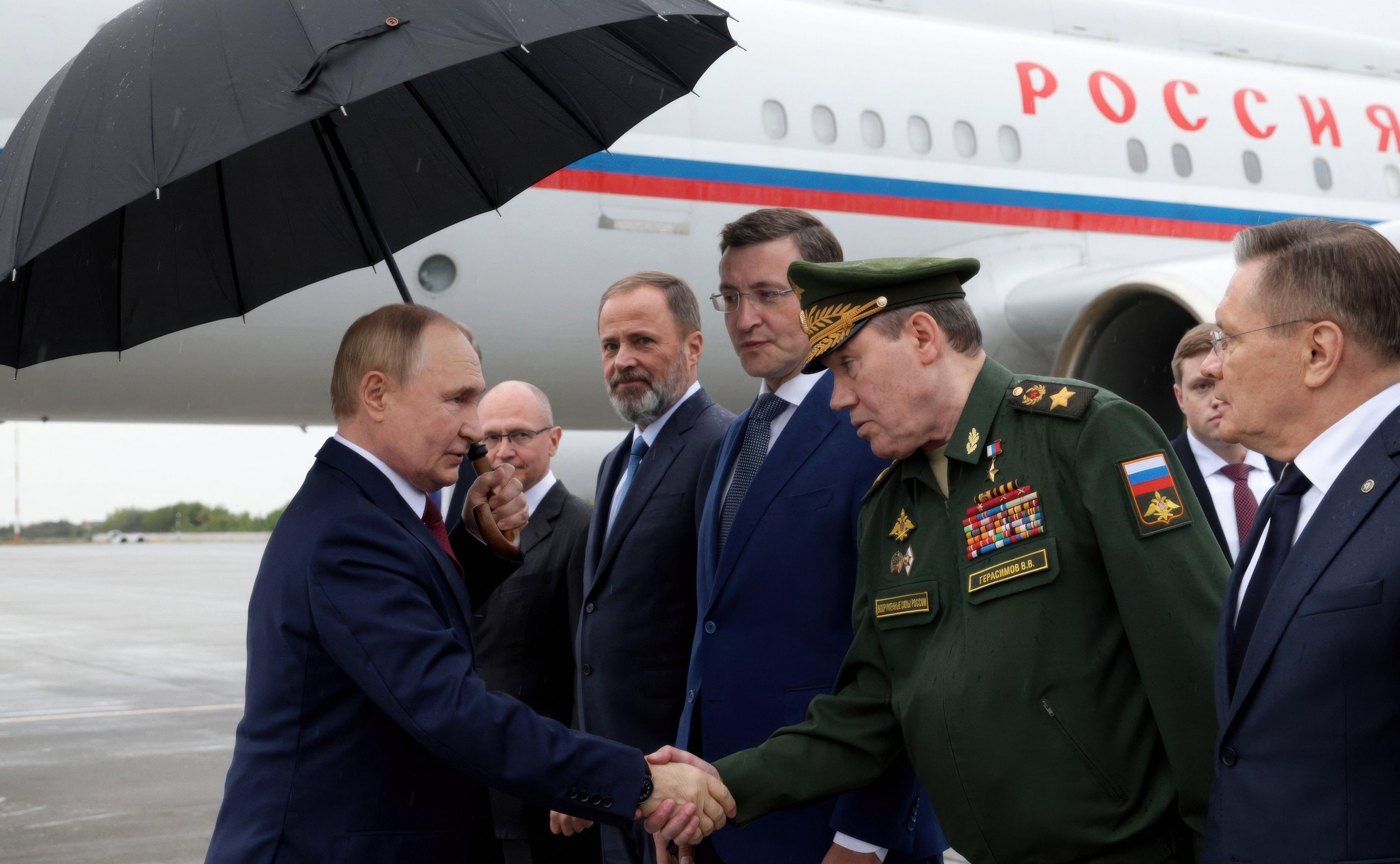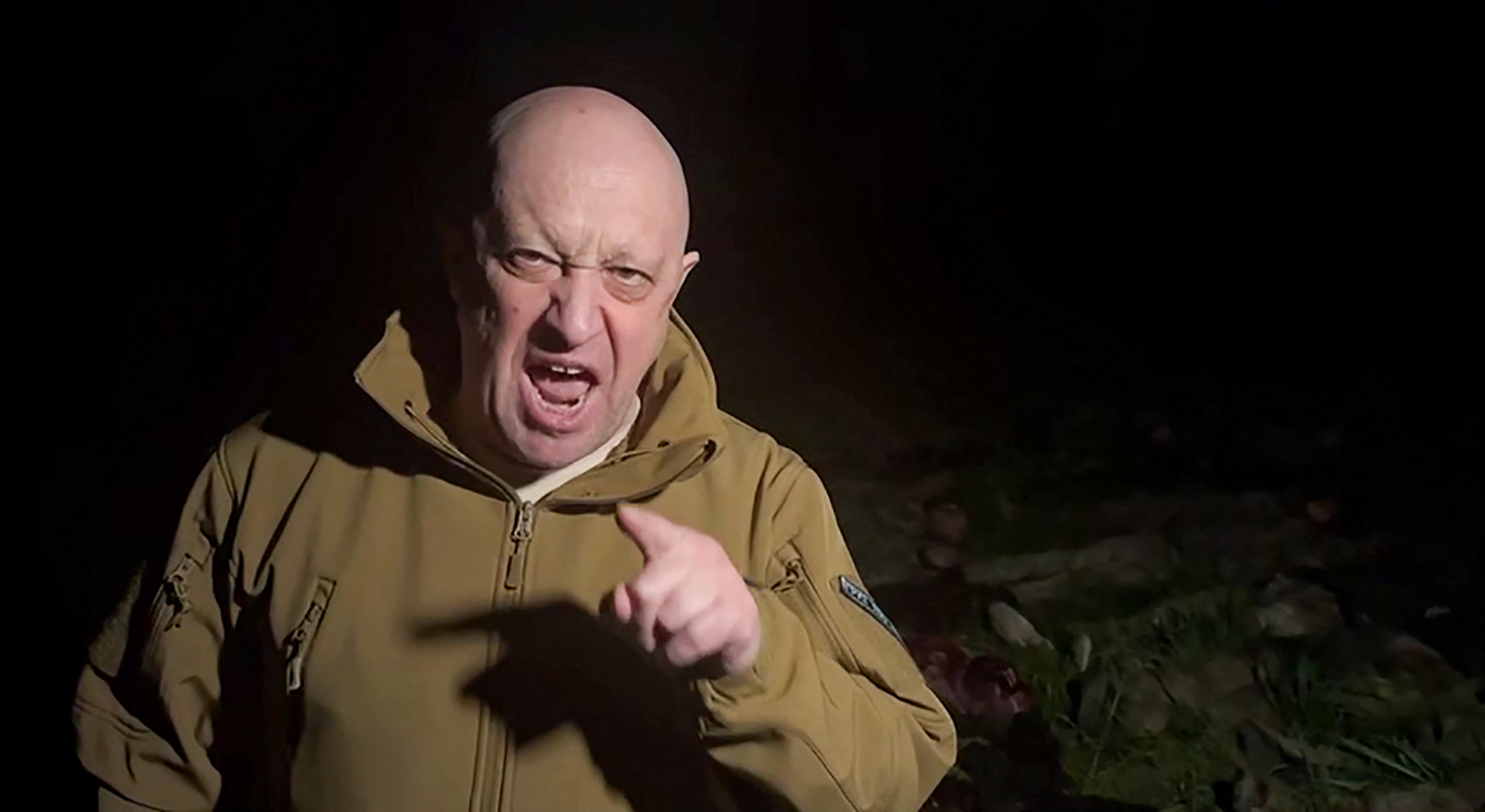On Monday, Russia’s chief of the general staff, Valery Gerasimov, author of the brutal war against Ukraine, turned 70. To mark this landmark age, President Putin’s loyal follower was awarded the Order of Courage as a birthday present.
For any other general, reaching 70 would mean automatic retirement, but Putin is showing no signs of planning to dismiss his top general.
Although we have seen no presidential decree extending his term just yet, Gerasimov remains in his post. The war strategy in Ukraine will thus continue, as will the regime’s drift into gerontocracy —much to the dismay of many within the system.
Gerasimov is presumably content, but no one else seems happy with the idea of the war continuing as it is. Even though he has been chief of the general staff for almost 13 years, the longest incumbent since tsarist times, there have been neither public tributes, nor signs of personal esteem.
Dara Massicot, senior fellow at the Carnegie Endowment for International Peace, noted on X that “one of the quirks of the Russian military is that the respected/popular senior officers usually receive many warm birthday wishes and affectionate nicknames. It’s quiet out there for Gerasimov”.
Although his former Ukrainian counterpart General Zaluzhny later called Gerasimov “the smartest of people” and a “strong and unpredictable enemy”, a Pentagon assessment at the time of his appointment summarised him as “perhaps not the most brilliant officer of his generation, but well-respected and trusted”.
How times have changed. Acerbic comments on military social media sites on his birthday described him variously as the “gravedigger of the Russian army”, “the chief imbecile”, and “overdue for a holiday in the Netherlands”, alluding to the outstanding war crimes warrant out for him from the International Criminal Court in The Hague.
When Yevgeny Prigozhin, the man behind the Wagner mercenary army, staged his abortive mutiny in 2023, he told Lieutenant General Vladimir Alexeyev, deputy head of military intelligence, that he was just out to get Gerasimov and Sergei Shoigu, then the defence minister. Alexeyev simply snorted, “Take them!”
Putin’s man
President Putin greeting Gerasimov in the Novgorod region last month
GAVRIIL GRIGOROV/KREMLIN POOL/ALAMY
Born in a working-class family in Kazan, southwest Russia, Gerasimov enrolled in the military from school. He quickly rose through the ranks, serving during the bloody Second Chechen War (1999-2009). He had no previous connection with Putin, but since his appointment a in 2012 has been a regular figure accompanying the president during military exercises and staff briefings.
As chief, his role is to be at once foreman and shop steward, to enforce orders from above, but also communicate to the leadership the concerns of the army. No one believes Gerasimov does the latter. His relationship with his own soldiers took a decisive turn for the worse with the 2022 invasion. He appears to have been one of the few senior figures with whom Putin shared his plans, and as a British defence official told me, “it’s impossible he didn’t know that the dream of a rapid seizure of Ukraine was at best a gamble, at worst a fantasy”.
When, in 1979, his predecessor Marshal Nikolai Ogarkov heard that the Kremlin planned to invade Afghanistan, he kicked up such a fuss that the defence minister — an old drinking friend of the Soviet leader Leonid Brezhnev — barred him from briefing the ruling politburo.
Gerasimov, by contrast, seems to have raised no concerns about the invasion of Ukraine. He has presided over a brute force strategy that may yet manage to bleed Ukraine into some kind of an ugly deal, but at terrible cost to Russia: more than a million estimated dead and wounded, the decimation of its more elite forces, and the loss of most of its tank fleet.
The substitutes’ bench
Yet Putin, always more concerned with loyalty than competence, seems set to cling to Gerasimov. It is certainly not that no one could replace him. General Sergei Surovikin, 58, a former special forces officer who had served in Afghanistan, Chechnya and Syria was once the heir apparent, but too close an association with Prigozhin saw him fall from favour. Ruthless and imaginative, he still has considerable support within the ranks, but Putin is unlikely to trust him.
The late Wagner chief Yevgeny Prigozhin
AFP PHOTO / TELEGRAM
The ground forces commander Colonel General Andrei Mordvichev is generally regarded as having had a “good war” but at 49, may not yet have the authority for the position. He is also not known for being a “yes man”, which would again sound like a reason for a “Putin no”. The paratrooper commander Colonel General Mikhail Teplinsky, 56, is able and energetic, and well-liked by some, but he himself appears to be trying to avoid what is, after all, something of a poisoned chalice.
On with the grind
So long as Gerasimov remains, there is unlikely to be any real change in strategy. The recent intrusion of 20 drones into Polish airspace, as much a test and a warning to Europe as an attempt to sweep round into Ukraine and bypass its air defences, may have shocked many but fits a pattern of calibrated pressure. A Nato official told me it “was reckless on one level — what if someone had been killed? — but also careful. The Russians are always checking to see just how far they can go”.
Gerasimov was a tank commander trained in the rapid, decisive combined arms manoeuvres that characterised both Soviet and Russian doctrine, of the sort being wargamed in Belarus during the Zapad-25 military exercises. Ukraine has become a different kind of war, and he has coped by falling back on mass. Having seen his precious tanks burn on the Ukraine front, he is using his soldiers instead. His is a numbers game, based on the calculation that Russia can fight a war of attrition longer than Ukraine, pitting a population of 143 million against one of less than 40 million.
Destroyed Russian tanks in Bucha, near Kyiv, in 2022. The loss of military hardware prompted a change in tactics
RODRIGO ABD/AP
Rumbles in the ranks
It may work in the long run, and while the Ukrainians have demonstrated ingenuity to match their determination, the Russians have also learnt many lessons, both tactically and industrially. Instead of the largely mythical human wave “meat assaults”, they often operate in small teams infiltrating the thinly spread Ukrainian lines, or as 21st-century dragoons, riding motorcycles in an attempt to speed through the drone-watched no man’s land before dismounting to fight.
However, there is also dismay in the officer corps, not only that Gerasimov remains in place, but also that there is no scope for any rethink of the overall approach. In this messy and confusing war, Gerasimov still clings to a rigid and hierarchical approach that has often seen early advances squandered by a failure quickly to exploit them. Last month, for example, assault squads pushed towards the town of Dobropillia in their biggest advance in one day for more than a year, but while the Ukrainians quickly shifted troops in response, a lack of a Russian follow-up meant that many of their squads were encircled, captured or destroyed.
Ageing regime
The dissatisfaction with Gerasimov’s retention reflects a wider generational tension within the system. Putin, 72, whose increasingly isolated position means he doesn’t really know the rising generation of leaders, is holding on to those political veterans he does know. Putin is presiding over an increasingly aged regime. The foreign minister Sergei Lavrov is 75, and for years has been petitioning to be allowed to retire. The security apparatus is likewise in the hands of pensioners, from the ailing 73-year-old Alexander Bortnikov, still heading the Federal Security Service, to the 71-year-old commander of the National Guard, Viktor Zolotov.
Russian foreign minister Sergei Lavrov
EPA/RAMIL SITDIKOV / REUTERS
Meanwhile, most of the people running the country for Putin, are of a different generation. Mikhail Mishustin, the prime minister, is 59, Denis Manturov, the first deputy prime minister, is 56, the finance minister, Anton Siluanov, is 62, and the industry minister, Anton Alikhanov, is only 38. Elvira Nabiullina, the chair of the Central Bank, is 61. Unlike Putin’s generation, these are not relics of the Soviet era, still hankering after the days of superpower. They are also concerned about the longer term, seeing the economy slide into stagnation, and the country risking becoming a vassal of China’s.
In the government, as in the war, there is likewise scope for tactical innovation, but no change in overall strategic plan. Mishustin has presided over a massive digitalisation of government, Nabiullina has performed miracles by sanctions-proofing the economy, and Manturov eased a shift to a war economy that could have been much more disruptive.
As a seasoned political observer in Moscow told me, “none of them have any real input into the overall direction of travel. Their job is just to perform miracles when the boss demands it. And, yes, it frustrates them.”
There is nothing much anyone can do for now. Putin is not just constitutionally unassailable, but so long as the security apparatus is loyal, he is secure. But the Wagner mutiny is a reminder of the risks of passive disaffection. When a few thousand mercenaries were heading for Moscow, both Gerasimov and Zolotov tried to get their forces to take a stand. Most, though, simply stood back to see what would happen. If there ever is a serious challenge to Putin and his ageing cronies, will the hungry and disgruntled younger generation of generals and officials rally round?




